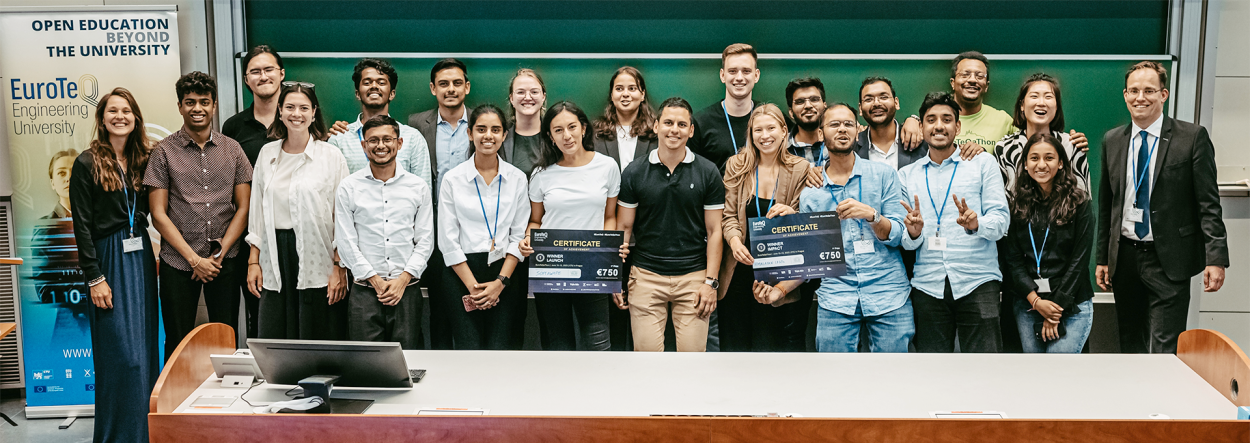EuroTeQ 2030: the European university will enter its next phase

Since 2020, six leading universities of science and technology in Europe have worked together to build the EuroTeQ Engineering University, offering their students additional and innovative training formats. Describing the next phase, "EuroTeQ 2030" has been selected by the European Commission and secured funding for the European university until 2027. Two additional partner institutions, HEC Paris and IESE Business School, and two associated partners, Institut Polytechnique de Paris and EPFL, will join the consortium, which comprises so far the following six partner institutions: École Polytechnique, the Technical University of Munich (TUM), the Technical University of Denmark (DTU), Eindhoven University of Technology (TU/e), Tallinn University of Technology (TalTech) and the Czech Technical University in Prague (CTU).
"Since the foundation of the European EuroTeQ Engineering University in 2020, we have offered faculty and students the opportunity to experiment and implement new teaching, learning, and innovation formats while involving corporate partners. Given the fast pace of technological and socio-environmental evolutions, a new collaborative and international approach to engineering education is crucial to prepare students for their future careers", comments Éric Labaye, Chairman and President of École Polytechnique and Institut Polytechnique de Paris.
Over the next four years, 12.8 million euros from Erasmus+ will be invested in the partners' ambitious project proposal entitled EuroTeQ 2030. As visible in the proposal's name, the partners aim to make the EuroTeQ Engineering University a consistent innovative training model that will continue beyond 2027.
"We are delighted and grateful that the European Commission recognizes our work, and we will continue our efforts to further develop the EuroTeQ Engineering University alongside two additional partner institutions, HEC Paris and IESE Business School, and two important associated partners, including Institut Polytechnique de Paris", Éric Labaye adds.
During the coming four years, the eight academic partners will focus on the following aspects of the EuroTeQ Engineering University:
- The EuroTeQ Campus will be expanded with diverse study programs that will provide 50% of students with an international experience in their studies in the future. The program already allows students to take academic courses at partner universities. The EuroTeQ course catalog lists 128 courses the partner universities offer and to which École Polytechnique’s students can register.
- The EuroTeQ Collider enables unique challenge-based learning experiences in project teams with industry collaborations and teaches entrepreneurship skills. Vocational trainees and professionals are encouraged to participate.
- The EuroTeQ Academy is developing a lifelong learning offering for employees and external professionals and is to launch agile training opportunities on the market. These include Micro-Credentials and an Executive Program for Senior Specialists.
- The EuroTeQ Education Lab forms the interface between educational research and pedagogical practice for innovative teaching formats and the internationalization of teaching staff.
 Support l'X
Support l'X